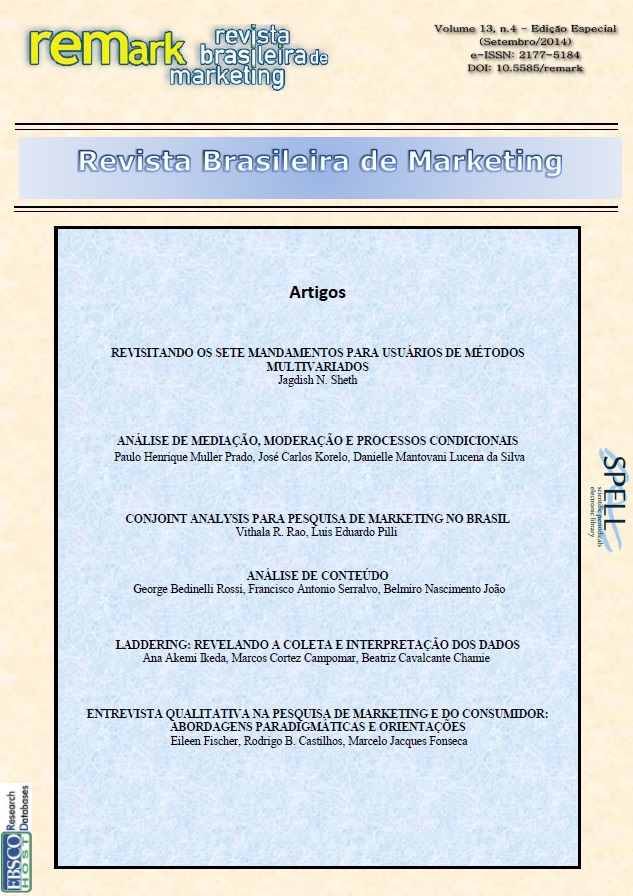Conjoint Analysis for Marketing Research in Brazil
DOI:
https://doi.org/10.5585/remark.v13i4.2707Keywords:
Conjoint Analysis, Measurement of Trade-Offs, Multi-Attribute Preference Models, Sets Stated Preference Methods, Sets of Methods Declared Choice, Adaptive Methods of Conjoint Analysis Applications.Abstract
This article offers a review from 1971 to the present, methods of conjoint analysis approaches that are data collection based on stated preferences or choices by consumers. Thousands of studies have been performed using conjoint analysis, since the introduction of the method in the early 70's This set of methods allows market researchers to study trade-off between the attributes of new products, and is useful for various decisions marketing to product design, pricing and market segmentation. The current set of options conjoint analysis is made by the traditional approach stated preference, the discrete choices techniques (or CBCA choice based conjoint analysis) which are based on choices declared by self-explanatory approach which uses direct elicitation of importance attributes and evaluation levels of the attributes and the adaptive approach (ACA or adaptive conjoint analysis) that involves data collection in stages and adaptive. This article summarizes these methods and their recent developments and presents an application in the Brazilian Market. Given the versatility of the method, there is huge potential for marketing research in Brazil. Essentially, this methodology is alive and growing.Downloads
Published
2014-09-11
How to Cite
Rao, V. R., & Pilli, L. E. (2014). Conjoint Analysis for Marketing Research in Brazil. ReMark - Revista Brasileira De Marketing, 13(4), 25–38. https://doi.org/10.5585/remark.v13i4.2707
Issue
Section
Articles
Views
- Abstract 369
- PDF (Português (Brasil)) 247
- PDF/ENGLISH (Português (Brasil)) 68








